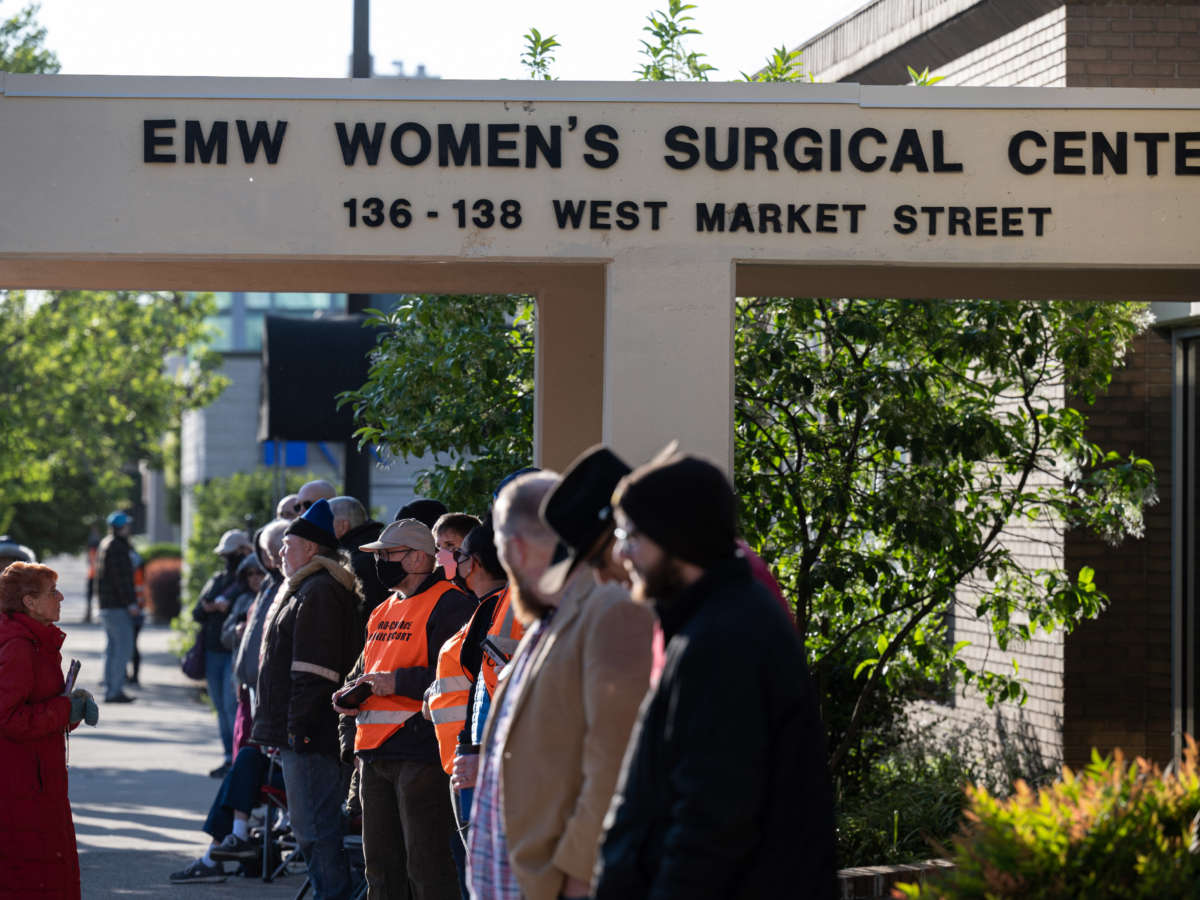A federal judge has temporarily blocked the enforcement of a Kentucky law that would have placed extensive restrictions on abortion, allowing the last two clinics in the state to continue providing abortion services to clients, at least for now.
The ruling from U.S. District Judge Rebecca Grady Jennings is being seen as a victory — albeit potentially a short-lived one — for abortion rights in the state.
The Republican-run Kentucky legislature passed a law earlier this month that banned abortions after 15 weeks of pregnancy, a timeframe during which individuals are often unaware they’re pregnant. The law also placed new restrictions on abortion clinics, including reporting requirements, that the two clinics in the state couldn’t immediately comply with.
Gov. Andy Beshear (D) vetoed the bill, sometimes referred to as HB 3. But the legislature overrode his veto last week, passing the measure into law.
Jennings, a Trump-appointed federal judge, did not rule on the constitutionality of the law — she said she would make a decision on that matter during a separate hearing in the future — but she did place a temporary block on the law, saying that it had been passed too quickly and that it didn’t allow abortion clinics to respond to the new regulations in a timely fashion.
“The plain language of HB 3 is clear that the entire law became effective and enforceable on April 13, 2022,” Jennings said in her ruling. She added:
The court finds that based on the plain language of HB 3, the Kentucky legislature intended for the entire law to become effective immediately, regardless of whether [the state] created a means for compliance.
Opponents of the bill lauded the judge’s ruling, noting that the regulations were never about strengthening oversight of abortions, as its defenders claim, but rather about tightening rules in order to make it impossible for the clinics to remain compliant.
“Abortion remains legal and is once again available in Kentucky,” said Heather Gatnarek, staff attorney with the American Civil Liberties Union of Kentucky. “We will always fight to keep it that way here and across the country.”
The law will likely continue to be debated in the federal court system for several months. However, there’s a strong possibility that Jennings’s ruling could be rendered moot, depending on how the Supreme Court rules on abortion later this year.
Kentucky is one of several states that has a “trigger” law in place, which would make abortion illegal outright if the Court overturns Roe v. Wade, the 1973 decision that recognized the right to abortion throughout the entire U.S. During hearings last winter, the Supreme Court’s conservative justices indicated they were willing to undo or severely curtail federal abortion protections.


